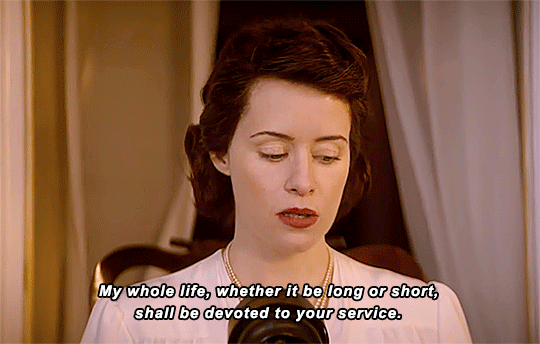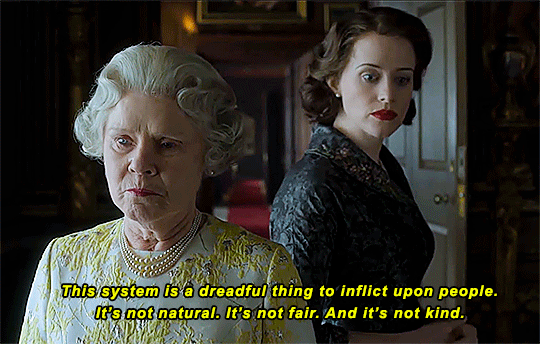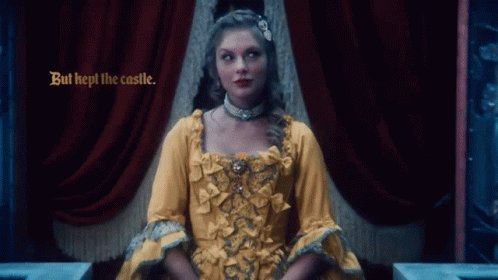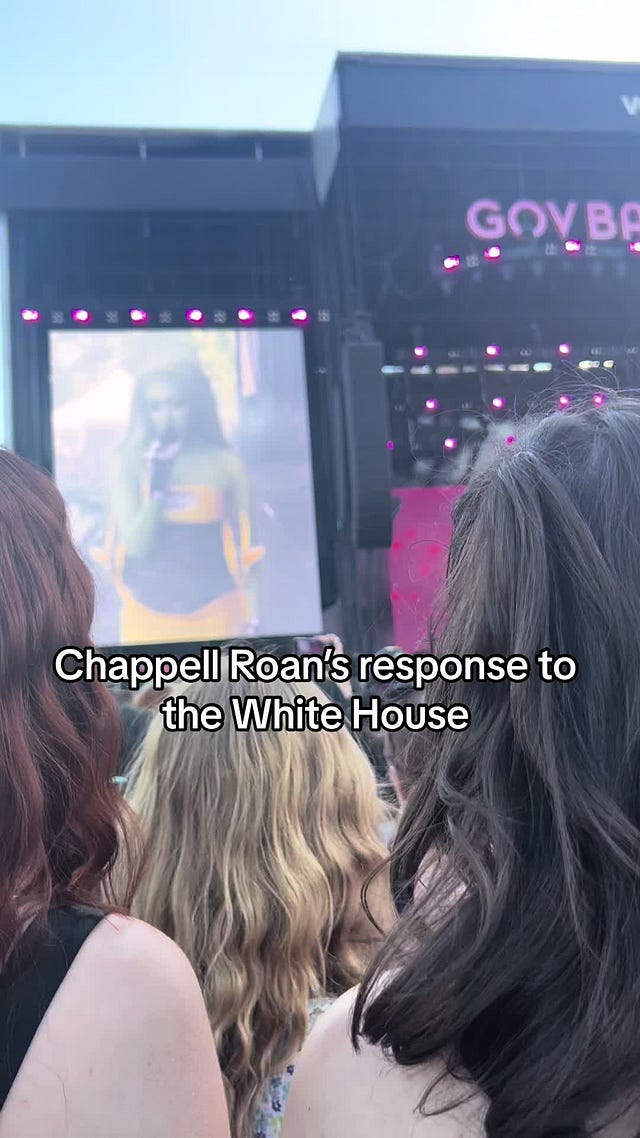Greetings, Dames Nationals!
It is I, Dame Margaret, back from my rambles abroad to share with you some thoughts about the monarchy. No, not thoughts on Catherine, Princess of Wales, her successful cancer treatment, and her possible impending folk album…

No, the royal I found myself thinking about this week was Queen Elizabeth II or, to be more accurate, Peter Morgan’s fictional version of her on The Crown.
Morgan’s series does an incredible job of dramatizing the impossible contradiction at the heart of Queen Elizabeth’s life: her job was to embody the Power of the British Empire but, to do it correctly, she could never be seen directly exercising power herself. The Nation vested her with massive symbolic power— and huge wealth— but any attempt to use that power to forward her own ends would be met with outrage and rejection: she could only hold power if she never deployed it. Like, just consider this historical fact: once a week, Queen Elizabeth II would meet with the British government’s current Prime Minister, said P.M. would bow and perform courtly deference to her, and then she would listen to the P.M. recount the political news of the week while, according to biographers Sally Bedell Smith and Clive Irving, scrupulously refraining from offering any advice or opinions. Per Bedell Smith, “It’s the last thing she would have done.” So, that’s being the constitutional monarch of the United Kingdom: the elected head of state must bow to you, but only if you both agree that they should never have to listen to you.
What, you may ask, brought this Regal Catch-22 to mind for me this week? The answer, as it so often is for me, is Taylor Swift.
I hear you interrogating the aptness of this analogy. Given the amount even non-fans know about Taylor Swift’s past relationships and ongoing feuds, you could hardly say, as Clive Irving does of Elizabeth, that “few of her private attitudes have been recorded for posterity.” But while Swift’s attitudes about traditionally private subjects are often a matter of public record (or public records), she approaches politics with a rectitude that’s almost royal. And it’s the intricate dance she performed around endorsing Kamala Harris that put me in mind of Queen Elizabeth II this week.
Dames Nation: Keeping It Classy-Fied!
Books on GIF is a FREE newsletter that uses GIFs to review books. A “brilliant high-low fusion of an old art form and modern storytelling device,” says Esquire. Bestsellers! Classics! Hidden gems! Try A Month in the Country, a perfect summer novel about the healing powers of art and fellowship.
Fancy some music that you can lindy hop to? Pledge to Travels With Brindle’s Kickstarter (launching on September 18) for a preorder of her Sparks tribute album!
Have you ever wanted to be a freelance writer? Jen A. Miller has been a Hired Pen for almost 20 years and shares her six-figure earning power knowledge (the highs, the lows, the gripes and all), in her FREE Notes from a Hired Pen newsletter, and in her charming — and charmingly cheap — $10 eBooks.
Thank you to our advertisers!
You help keep us going and we appreciate it so very much! Do you sell items or provide services that readers of this newsletter might like to buy?
You can reserve your spot for future issues right now! An ad for a single issue is $25, or you can buy a month’s worth of ads (in 4 consecutive newsletter issues) for just $50.
(Ad maximum is 300 characters, including emojis. All ads are text-only and subject to TBD approval. Limit four total ads per issue. Full details in our handy fact sheet!)
As a self-described Swiftologist, Swift’s endorsement— and her actions in the weeks leading up to it, which I will dig into below— are a rich text. Moreover, to me and others embedded in the Swiftie-verse, it was a forceful text. But to people outside Taylor’s Sphere of Influence, this characterization looks delusional. In a world where Chappell Roan, a wildly popular but vastly less established, wealthy, or protected star, has made political statements this searing:
Why would a star of Taylor Swift’s stature need to be so— to use a pair of words whose aptness I hope makes up for their present overexposure— demure and mindful about her endorsement? And how can a message so comparatively subdued be perceived as audacious? And it’s here that Queen Elizabeth II re-enters the conversation, because possessing and maintaining the almost unprecedented level of fame that Taylor Swift presently does comes with obligations not unlike those of a constitutional monarch.
Like the Queen, Taylor Swift has been invested with massive symbolic power. Her fans are so numerous and so emotionally devoted to her that even people who actively dislike her cannot escape her attention economy. It’s easy to assume that this type of adoration brings security, that being invested with so much power would make bold use of it effortless. However, the opposite is true: Taylor Swift has been given great power, but—again, like the Queen— she can only maintain that power if she appears not to use it. While Chappell Roan and other stars whose fame is still rising can be bold in how they use the amount they’ve presently accrued, established celebrities like Taylor Swift and Dwayne "the Rock” Johnson can only stay famous by remaining the person their fans know and love.

Since the Taylor We Love has been brat about her personal life since day one, she can iterate endlessly on that brattiness without endangering her fame. But when Taylor wants to do something that the Taylor We Love famously avoided— like making direct political statements— she has to be exceptionally mindful or she risks losing her subjects’ allegiance. Every time she branches out, Swift and Tree Paine, her god-tier publicist, have to manufacture continuity between the Taylor We Love and the New Taylor that they are attempting to manifest— which brings us to the tactical savvy of this week’s announcement.
Instead of immediately speaking out against Donald Trump’s use of A.I. images to imply Swift’s support of his campaign, Taylor and Tree saved their comment for her endorsement, where they used Trump’s behavior to demonstrate the “necessity” of Swift abandoning her traditionally apolitical stance. Lest Taylor’s subdued references to abortion rights or scorned J.D. Vance comments make her conservative fans feel attacked, Taylor and Tree sought to disarm them with a highly orchestrated and extremely public embrace of rumored Trump-supporter, Brittany Mahomes. And finally, while Swift’s endorsement states her reasons for supporting the Harris-Walz campaign, the call to action she gives her fans is politically neutral: she asked them to do their research, make their own choice, and be sure they are registered to vote— which as many as 400,000 people may have done. A less guarded approach would not have been equivalently successful at Taylor Swift’s two goals: endorsing Kamala Harris’s political campaign and sacrificing as little cultural dominance as she can.
And that’s where the likeness to Queen Elizabeth II weakens once again. While Elizabeth’s role was assigned to her by birth, Taylor is a Kween by choice. When witnessing her statecraft, I cannot help but admire its sophistication. But I also believe the addiction to cultural dominance that drives Swift to such statecraft undermines her development as both an artist and a person. The emotional and physical risks of speaking out are real and— as the length and depth of analysis here likely demonstrate— I believe it’s unfair when people dismiss them as nothing. But I think the reward of a more integrated life is worth fighting for, and I wish Taylor understood that as well as she understands how to maintain a pretense.
XO, Dame Margaret
This week’s issue brought to you by:









